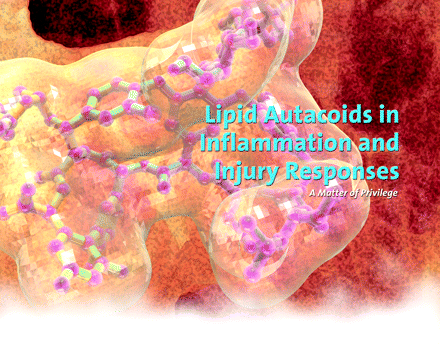Lipid Autacoids in Inflammation and Injury Responses: A Matter of Privilege
Abstract
Host defense is essential to all vertebrates, and programs of inflammation and wound healing must be highly integrated in tissue and organ structures, such as the skin, cornea, and mucosa, that provide crucial barriers and interfaces with the external environment. Certain aspects of inflammation and wound healing have posed a conundrum for biologists, especially to the extent that the two programs may appear to operate in opposition to each other. The recruitment of neutrophils to injured tissue, for example, is essential to inflammation and defense against infection, but can at the same time impair wound healing. One mechanism for regulating this duality is provided by lipid autacoids, which act to restrain leukocyte activation and to promote the resolution of inflammation. Emerging evidence indicates that lipid autacoids also have a central role in wound healing and in fact mediate a privileged injury response, as is observed in the cornea, characterized by rapid healing as well as effective host defense.

- © American Society for Pharmacology and Experimental Theraputics 2008



